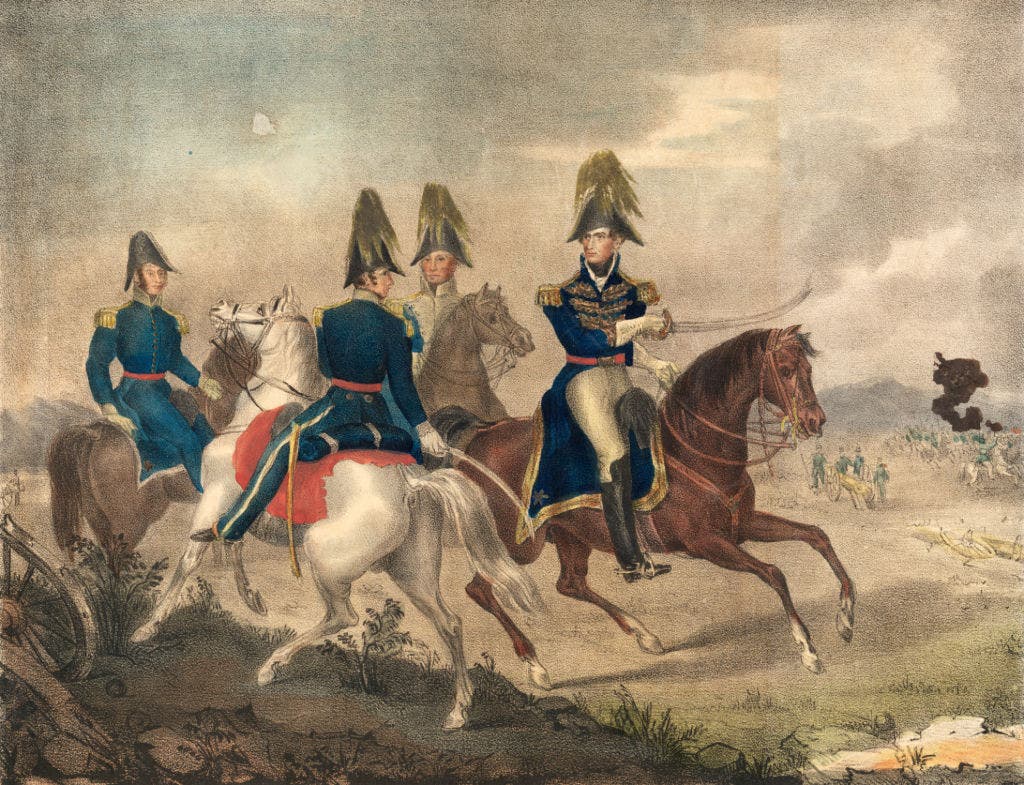On October 5, 1813, General William Henry Harrison led a significant victory over British forces and their Native allies in the Battle of the Thames. This victory in the War of 1812 had lasting repercussions on U.S., British, and Native American history, as well as on the settlement of the west. The battlefield heroics propelled Harrison, who was the son of Declaration of Independence signer Benjamin Harrison V, to the White House in 1841. This battle marked a decisive American victory that brought Michigan and the Old Northwest back under American control, and Shawnee chief Tecumseh, a key resistance leader, was killed during the encounter.
The Battle of the Thames played a crucial role in bringing Michigan and the Old Northwest back under American control. Tecumseh, who had bravely led resistance to American expansion in the Midwestern states, along with the British, had seized the American fort in Detroit a year earlier. However, after Commodore Oliver Hazard Perry led a stunning U.S. victory over the British navy in the Battle of Lake Erie on September 10, 1813, Americans were able to reclaim the stronghold. Spurred by Perry’s heroics on the water, General Harrison’s forces recaptured Detroit and forced the British and Native forces into Ontario.
A controversy arose over the British betrayal of Tecumseh during the Battle of the Thames, as their demoralized forces fled and left the Shawnee and his allies to fight alone against American troops. This betrayal led to other Native American tribes revoking treaties with the British, thereby ending British influence over these tribes and removing the possibility of future Native American attacks on American positions. Harrison’s victory in the War of 1812 and his earlier win over Tecumseh at the Battle of Tippecanoe in 1811, contributed to his successful run for presidency in 1840, campaigning as a war hero under the slogan “Tippecanoe and Tyler, too.”
General Harrison’s presidency began on a tragic note, as he succumbed to pneumonia just 31 days after taking office in March 1841, making his presidency the shortest on record. His running mate, John Tyler, finished out the remaining four-year term. Despite his short time in office, Harrison’s legacy endured, as his grandson, Benjamin Harrison, went on to become the 23rd president of the United States in 1893. The Battle of the Thames and the events surrounding it had a significant impact on American history and the relationships between the U.S., British, and Native American tribes.
In conclusion, the Battle of the Thames in 1813, led by General William Henry Harrison, was a crucial turning point in the War of 1812 and American history as a whole. The decisive American victory, which resulted in the death of Shawnee chief Tecumseh, had long-term repercussions on the settlement of the west and relations between the U.S., British, and Native American tribes. Harrison’s subsequent run for presidency and his short-lived term in office further solidified the impact of the Battle of the Thames on American politics. Ultimately, Harrison’s legacy lived on through his grandson, who later became president, highlighting the lasting influence of this pivotal moment in history.


